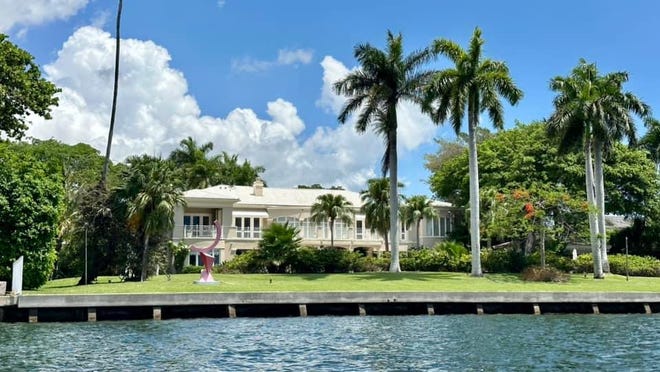
Exactly a century before Amazon founder Jeff Bezos announced he was moving to an exclusive island enclave just outside the Miami city limits, a land rush in Florida was underway during the Roaring ’20s.
Laying the groundwork for the land rush was the New York-born “Father of Miami” Henry Flagler, a founder of Standard Oil, whose completion of the Florida East Coast Railway in 1896 opened southeast Florida to tourists for the first time.
After the outbreak of World War I, many wealthy Americans who were used to vacationing in the French Riviera began frequenting the resort communities sprouting up in Miami and Palm Beach, creating the American Riviera.

During the great boom, developers began building islands in Biscayne Bay and connecting them with a series of bridges called the “Venetian Causeway,” says historian Seth Bramson, author of “33154: The Story of Bal Harbour, Bay Harbor Islands, Indian Creek Village and Surfside”
More:Amazon founder billionaire Jeff Bezos announces he’s leaving Seattle, moving to Miami, Florida
Work also had begun north of the Venetian Causeway by the Shoreland Co. to build one of the largest manmade islands out of a mangrove swamp, a 600-acre project then tentatively called the Miami Shores Island.
“They felt that they could do very well making money with a recreation island, which they would call Miami Shores Island,” says Bramson, a professor at Barry University in Miami. “They would have tennis courts. They would have golf, they would have recreation that people would pay and so they would make money.”
However, a year into the project, the Great Miami Hurricane of 1926 sent the Shoreland Co. into bankruptcy.
By then, close to 300 acres of the swamp had been developed into a barrier island. In 1928, a group of Midwestern millionaires bought the island from the government and the following year, a golf course and a red-tiled Mediterranean-style club opened. A two-lane bridge connected the island by road through the Town of Surfside.

Though the country was going through the Great Depression, several wealthy Americans built mansions near the clubhouse, says Bramson.
In 1939, getting wind of the fact that the Town of Surfside was discussing the possibility of annexing the island at its council meetings, the island’s residents took advantage of a now-defunct state law, which permitted any group of 25 or more people living relatively contiguously to form a municipality, according to Bramson.
The island was incorporated as Indian Village Creek on May 19, 1939.
The village, which has about 85 residents, now operates under a mayor-council form of government and has its own police department.
“It is a beautifully kept place, the homes, the public streets, everything is picture perfect. And that’s what they want. That’s what they’re entitled to,” says Bramson, who’s visited the island a few times. His late wife, a baker, had clients on the island.
Bezos owns two homes on the island: one that he bought in October for $79 million and a neighboring estate for $68 million, according to Bloomberg News.
Other A-list celebrities living in the so-called “Billionaire Bunker” are NFL legend Tom Brady, singer Julio Iglesias, investor Carl Icahn, Ivanka Trump and Jared Kushner.
The privately owned, exclusive residential enclave includes 41 platted waterfront residential home sites (which are owned by 36 property owners with 29 estate homes as of Dec. 31, 2017), according to the village website.
“It appeals to people who want complete privacy because even the road leading to the island is completely private,” says Lourdes Alatreste, a real estate agent in Miami who specializes in luxury properties.
Swapna Venugopal Ramaswamy is the housing and economy reporter for USA TODAY. Follow her on Twitter @SwapnaVenugopal
